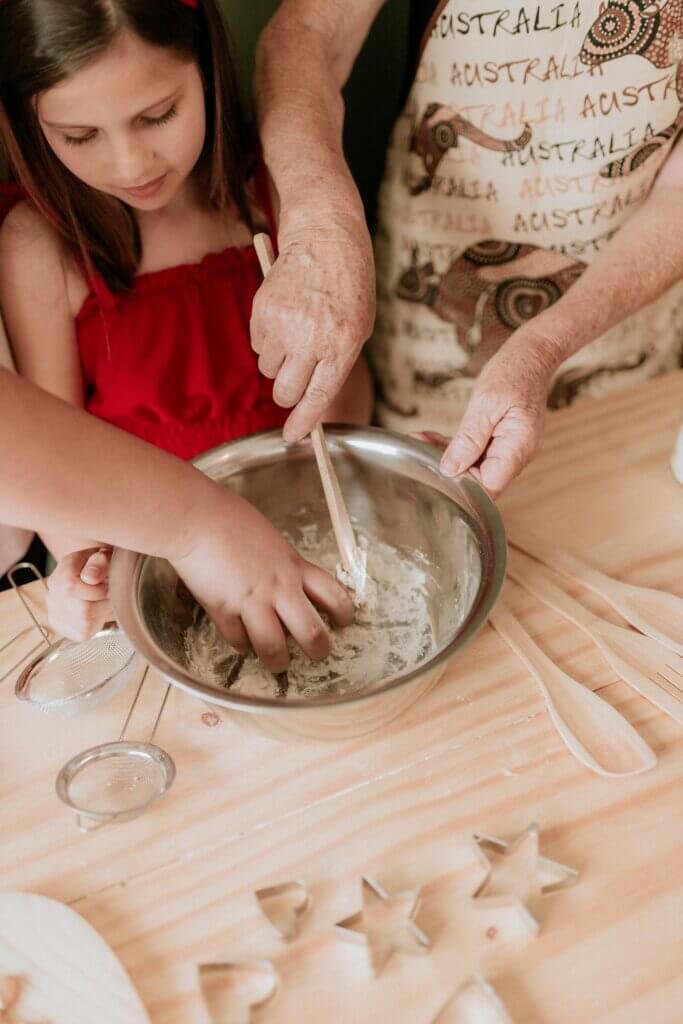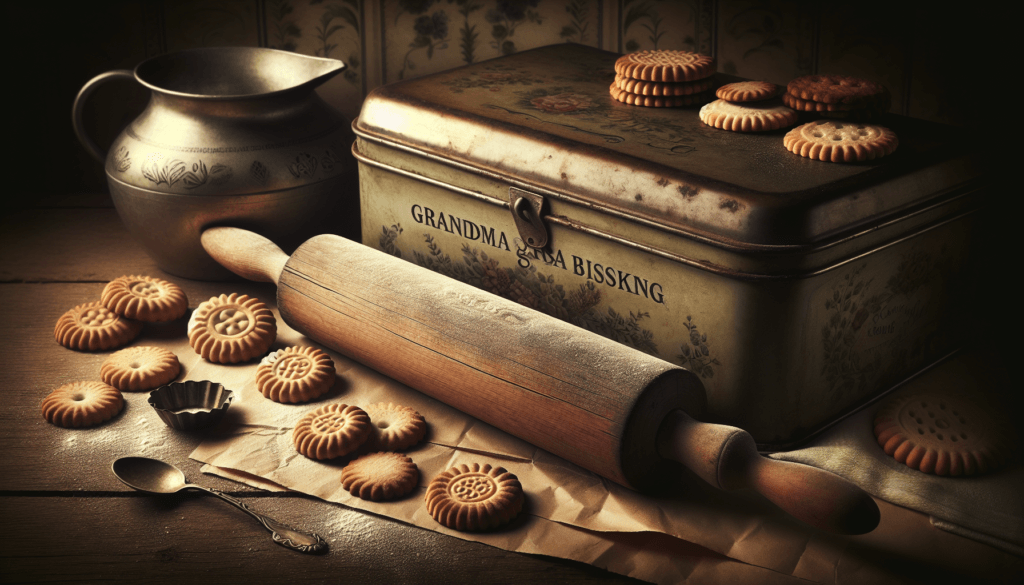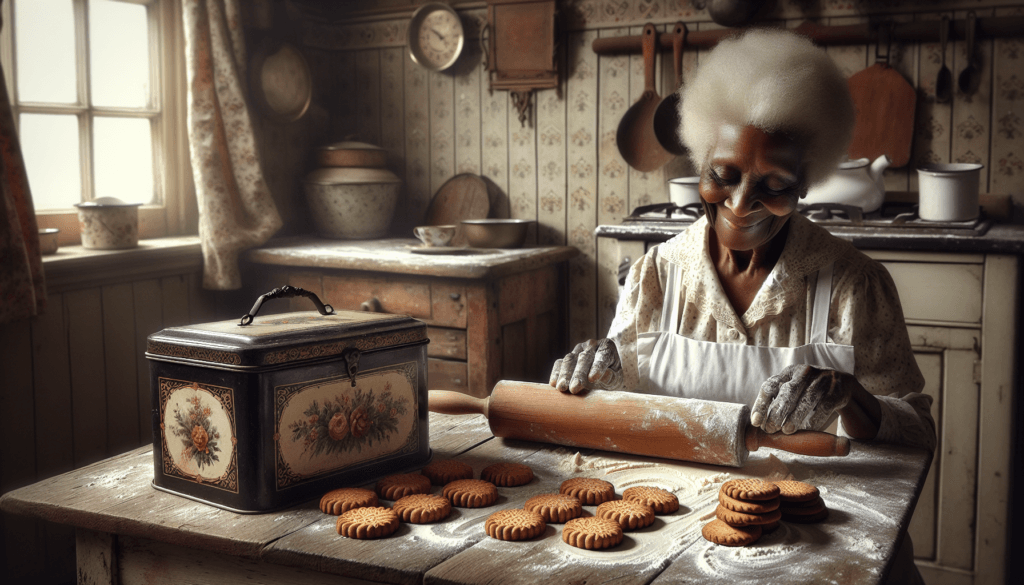Imagine being able to bake perfectly fluffy and delicious biscuits every time, just like your grandma used to make. In this article, we will uncover the coveted secrets and tips that grandmas have passed down through generations to achieve biscuit perfection. From the right choice of ingredients to the crucial steps in the baking process, you’ll discover the little tricks that will have everyone asking for your biscuit recipe. Get ready to impress your friends and family with your newfound biscuit-making skills!
Choosing the Right Ingredients
When it comes to making perfect biscuits, the first step is to choose the right ingredients. Grandma always emphasizes the use of all-purpose flour. This type of flour provides a good balance between protein and starch, resulting in biscuits that are light and tender. So, make sure to stock up on some good-quality all-purpose flour before you start baking!
Another important aspect of choosing the right ingredients is to opt for fresh and high-quality ingredients. This includes using fresh butter or shortening. The freshness of these ingredients contributes to the flavor and texture of the biscuits. Make sure to check the expiration date on the packaging and choose brands that are known for their quality.
Lastly, grandma swears by using cold butter or shortening when making biscuits. The cold temperature helps to create those delightful, flaky layers that we all love. So, be sure to chill your butter or shortening in the refrigerator before incorporating it into the dough. This small step can make a world of difference in the final result.
Preparing the Dough
Once you have gathered all the necessary ingredients, it’s time to prepare the dough. Grandma stresses the importance of measuring ingredients accurately. Baking is a science, and precise measurements are crucial for achieving the perfect texture and flavor. Use measuring cups and spoons specifically designed for dry ingredients to ensure accuracy.
When mixing the dough, grandma advises to mix it only until just combined. Overmixing can lead to tough biscuits, and nobody wants that! So, incorporate the ingredients until they are just blended together, using a light hand.
Handling the dough gently is another key factor in achieving tender biscuits. Avoid kneading the dough vigorously, as it can develop gluten and result in a tougher texture. Instead, gently pat and shape the dough until it comes together. Remember, the less you handle the dough, the better!

Methods of Incorporating Fat
The method used to incorporate fat into the dough can greatly influence the texture of the biscuits. Grandma suggests three popular methods: cutting butter into flour, using a pastry blender, or using the rubbing-in method. Let’s take a closer look at each one.
One common method is cutting butter into flour. Start by cutting cold butter into small cubes and add them to the flour mixture. Use a pastry cutter or two knives to cut the butter into the flour until the mixture resembles coarse crumbs. This method helps to evenly distribute the fat, resulting in tender and flaky biscuits.
Using a pastry blender is another effective technique. This tool consists of several thin, curved metal blades attached to a handle. Simply move the pastry blender through the butter and flour mixture, cutting the fat into small pieces. This method also helps to evenly distribute the fat while minimizing the risk of overmixing.
The rubbing-in method involves rubbing the cold butter or shortening into the flour using your fingertips. Take small pieces of the fat and rub them into the flour until the mixture resembles coarse crumbs. This method requires a bit more hand-work, but it can yield excellent results.
Adding Liquid
Adding the right amount of liquid to the biscuit dough is essential for achieving the perfect texture. Grandma suggests using cold buttermilk or cold milk. The cold temperature of the liquid helps to keep the fat in the dough cold, contributing to the flakiness of the biscuits.
When incorporating the liquid, it is important to avoid overmixing. Overmixing can lead to tough biscuits, as it may encourage gluten development. Simply add the liquid to the dry ingredients and stir just until the dough comes together. A few lumps are perfectly fine!

Shaping and Cutting
Once the dough is ready, it’s time to shape and cut the biscuits. Grandma advises rolling out the dough evenly to ensure consistent thickness. This can be done by lightly flouring a clean work surface and using a rolling pin. Roll the dough to a thickness of about half an inch so that the biscuits will rise properly in the oven.
To cut out the biscuits, grandma suggests using a biscuit cutter or a glass. Dip the cutter into flour to prevent sticking and press it firmly into the rolled-out dough. Avoid twisting the cutter as this can seal the edges and hinder the rising process. Instead, gently lift the cutter straight up, releasing the biscuit.
Baking Techniques
When it comes to baking the biscuits, grandma has a few techniques to ensure they turn out perfectly golden and fluffy. Firstly, she recommends using a hot oven. Preheat your oven to a higher temperature, usually around 425°F (220°C). The initial burst of heat helps the biscuits rise and creates that desirable golden crust.
Placing the biscuits close together on the baking sheet is another tip from grandma. This allows them to support each other while baking, resulting in taller and more tender biscuits. Just make sure not to overcrowd the baking sheet, as this can lead to uneven baking.
Lastly, avoiding overcrowding the baking sheet is crucial. Giving the biscuits enough space allows for proper airflow, ensuring they bake evenly. If necessary, bake the biscuits in batches to ensure they have plenty of room to expand and rise.

Tips for a Fluffy Texture
To achieve that coveted fluffy texture, grandma has a few tips up her sleeve. Firstly, she emphasizes the importance of keeping the ingredients cold. Cold ingredients, especially cold fat, help create those beautiful layers in the biscuits. So, refrigerate your butter or shortening until you’re ready to use them, and handle the dough with cold hands.
Using a light hand when mixing the dough is also crucial for a fluffy texture. Being gentle and kneading the dough just enough to bring it together will prevent the development of gluten strands that can make the biscuits tough.
Lastly, it is important to avoid overkneading the dough. Overkneading can lead to gluten development and result in tough biscuits. So, once the dough has come together, resist the urge to keep kneading it. Remember, fluffiness comes from a delicate touch!
Adding Flavor and Variations
If you’re feeling adventurous and want to add some extra flair to your biscuits, grandma suggests experimenting with different flavors and variations. One popular variation is adding grated cheese to the dough. Cheddar cheese, in particular, adds a rich and savory twist to the biscuits. Simply sprinkle some cheese into the dough during the mixing process and proceed as usual.
Incorporating herbs or spices is another great way to add flavor to your biscuits. Grandma often includes a pinch of herbs like thyme, rosemary, or dill to infuse her biscuits with a subtle hint of freshness. You can also experiment with spices like paprika, garlic powder, or even cinnamon to create unique flavor profiles.
For those who enjoy filled biscuits, grandma encourages you to get creative with your fillings. Whether it’s a dollop of jam, a spoonful of chocolate-hazelnut spread, or a savory mixture like ham and cheese, the possibilities are endless. Just make sure not to overfill the biscuits, as it can cause them to burst during baking.

Troubleshooting Common Issues
Sometimes, even with grandma’s tried and tested tips, things don’t go as planned. But don’t worry! Grandma has a solution for common biscuit issues. If your biscuits are not rising properly, it could be due to using old baking powder. Baking powder loses its potency over time, so make sure to check the expiration date and replace it if necessary.
If your biscuits turn out dry, it might be because they were overbaked. Keep a close eye on the biscuits while they are in the oven and take them out as soon as they turn golden brown. Overbaking can also cause the biscuits to lose moisture, so be mindful of your baking time.
On the other hand, if your biscuits are spreading too much during baking, it could be due to using warm or softened butter instead of cold butter. Make sure to follow the recipe and use chilled butter or shortening to maintain the structure of the biscuits.
Storing and Reheating Biscuits
So, you’ve baked a batch of delicious biscuits, but you can’t finish them all in one sitting. No worries! Grandma has some tips on storing and reheating biscuits to maintain their freshness.
To properly store baked biscuits, allow them to cool completely and then wrap them tightly in aluminum foil or plastic wrap. This will prevent moisture loss and keep the biscuits tender. Place the wrapped biscuits in an airtight container or zip-top bag and store them at room temperature for up to 2-3 days.
When it’s time to enjoy the leftover biscuits, reheating them is the way to go. Preheat your oven to 350°F (175°C) and place the biscuits on a baking sheet. Warm them in the oven for about 5-8 minutes, or until they are heated through. This will revive their flakiness and make them taste freshly baked again.
If you prefer a quicker method, you can also microwave the biscuits for about 20-30 seconds on high power. However, keep in mind that microwaving can sometimes make the biscuits slightly softer, so the oven method is generally preferred.

Freezing Biscuits for Later Use
If you want to have freshly baked biscuits on hand at all times, grandma suggests freezing them. To freeze the biscuits, let them cool completely after baking, then place them in a single layer on a baking sheet and transfer them to the freezer. Once frozen solid, transfer the biscuits to a freezer-safe container or zip-top bag.
When you’re ready to enjoy the frozen biscuits, preheat your oven to 350°F (175°C) and place the desired number of biscuits on a baking sheet. Bake them for about 10-15 minutes, or until they are heated through and golden brown. Freezing allows you to enjoy homemade biscuits anytime you want, with just a little extra effort.
Now that you have grandma’s tips for making perfect biscuits, it’s time to roll up your sleeves and get baking! With the right ingredients, proper techniques, and a little love, you’ll be enjoying fluffy, tender, and flavorful biscuits in no time. So, gather your ingredients, follow these steps, and get ready to impress your friends and family with your newfound biscuit-making skills. Happy baking!


